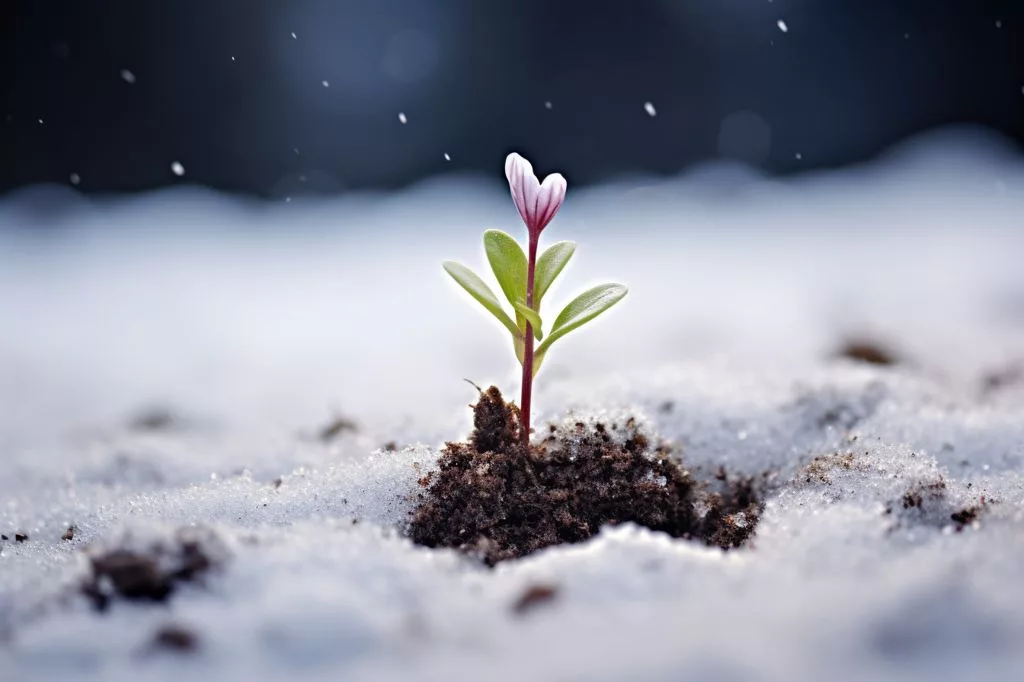Get ready for another economic winter in 2024, warns Maarten Ackerman, Chief Economist at Citadel. The global economy, still recovering from the Covid-19 pandemic, will slow down further, marking the start of a winter cycle before spring arrives in 2025. South Africa is expected to face a colder economic winter compared to other parts of the world, due to structural factors such as an unreliable electricity supply and dysfunctional rail systems. Private sector investments are crucial to turning this economic winter into spring, and investors should maintain a proportion of cash and bonds in their portfolios as the risk-reward balance in equities becomes less rewarding.
The global economy is still recovering from the impact of the Covid-19 pandemic. However, a prominent economist predicts another economic winter season in 2024, which will require strategic investments and prudent financial planning.
The Economic Seasons
Maarten Ackerman, Chief Economist at Citadel, uses the metaphor of weather seasons to describe economic conditions. By examining inflation and growth trends, one can identify four economic seasons: depression (winter), deflation, stagflation, and a Goldilocks scenario (summer).
The Impending Winter
Most indicators suggest that the global economy will slow down further in 2024, marking the beginning of a winter cycle before spring arrives in 2025. Countries such as Germany and the United States are showing signs of recession, and South Africa is expected to face a colder economic winter compared to other parts of the world.
South Africa’s Underperformance
South Africa’s current underperformance can be attributed to structural factors such as an unreliable electricity supply and dysfunctional rail systems and ports, which hamper exports. Ackerman believes that the key to turning this economic winter into spring lies in private sector investments.
The Role of Private Sector Investments
Private sector entities must remain both financially and emotionally invested in the country, showing faith in its future. Only consistent investment over time can restore South Africa’s economic strength. Ackerman advises investors to maintain a proportion of cash and bonds in their portfolios, as the risk-reward balance in equities becomes less rewarding.
Inflation and Stagflation Scenario
Inflation surged after the pandemic, exacerbated by the ongoing Russia-Ukraine conflict. Central banks worldwide have responded by rapidly raising interest rates, and investors should brace for these higher rates to persist for an extended period. Ackerman foresees a stagflation scenario in the coming years, characterized by stagnant growth and persistent inflation.
Geopolitical Challenges
In addition to economic challenges, the world will face geopolitical cold fronts during this winter period. The intensifying standoff between Western and Eastern powers, the expansion of the Brics alliance with six new members, and the recent developments in the Middle East contribute to a climate of uncertainty and volatility.
Navigating the Challenges Ahead
Navigating the impending economic winter of 2024 will require strategic investments from the private sector, prudent financial planning, and steadfast faith in South Africa’s potential. By addressing structural issues and maintaining a long-term perspective, the country can confidently emerge from this winter and step into the warmth of an economic spring by 2025.
What are the economic seasons that Maarten Ackerman uses to describe economic conditions?
Maarten Ackerman, Chief Economist at Citadel, uses four economic seasons to describe economic conditions: depression (winter), deflation, stagflation, and a Goldilocks scenario (summer).
What does the impending winter of 2024 mean for the global economy?
The global economy is expected to slow down further in 2024, marking the beginning of a winter cycle before spring arrives in 2025. Countries such as Germany and the United States are showing signs of recession, and South Africa is expected to face a colder economic winter compared to other parts of the world.
What are the structural factors that contribute to South Africa’s underperformance?
South Africa’s current underperformance can be attributed to structural factors such as an unreliable electricity supply and dysfunctional rail systems and ports, which hamper exports.
How can private sector investments help turn the economic winter into spring?
Private sector entities must remain both financially and emotionally invested in the country, showing faith in its future. Only consistent investment over time can restore South Africa’s economic strength. Maarten Ackerman advises investors to maintain a proportion of cash and bonds in their portfolios, as the risk-reward balance in equities becomes less rewarding.
What challenges other than economic challenges will the world face during this winter period?
In addition to economic challenges, the world will face geopolitical cold fronts during this winter period. The intensifying standoff between Western and Eastern powers, the expansion of the Brics alliance with six new members, and the recent developments in the Middle East contribute to a climate of uncertainty and volatility.








